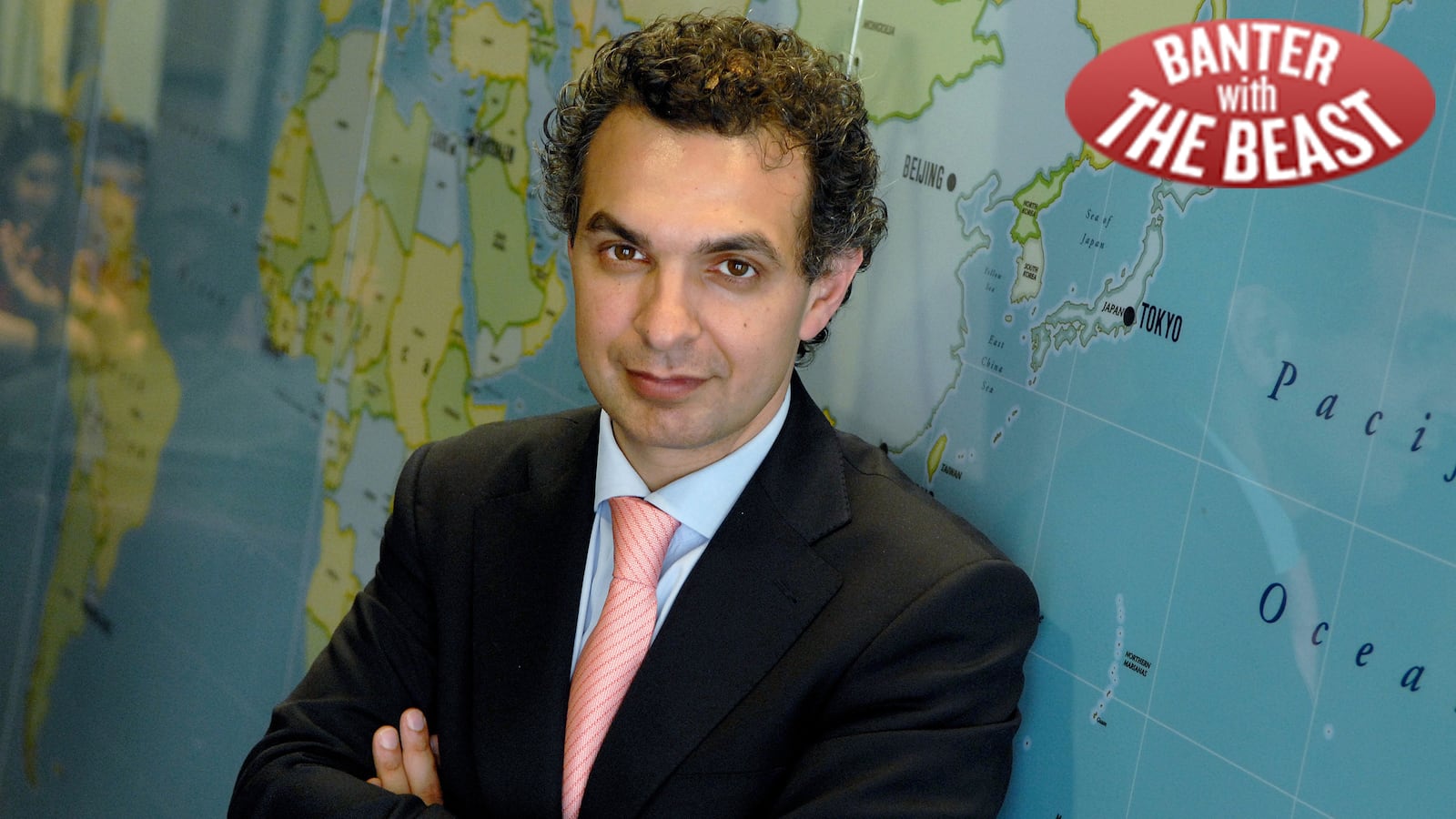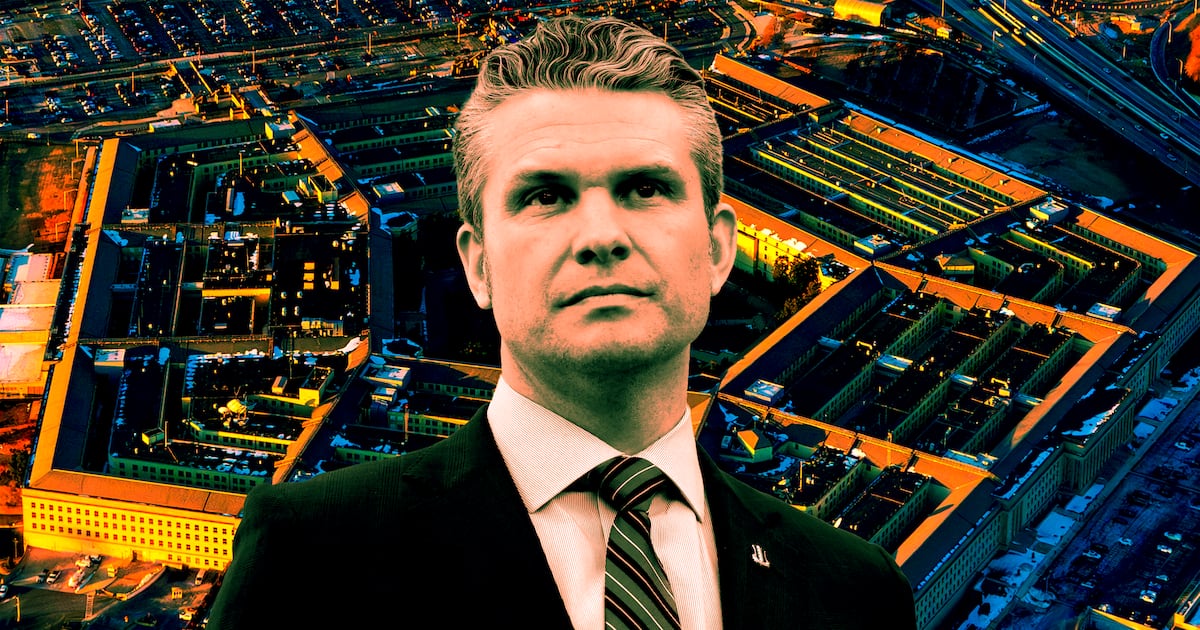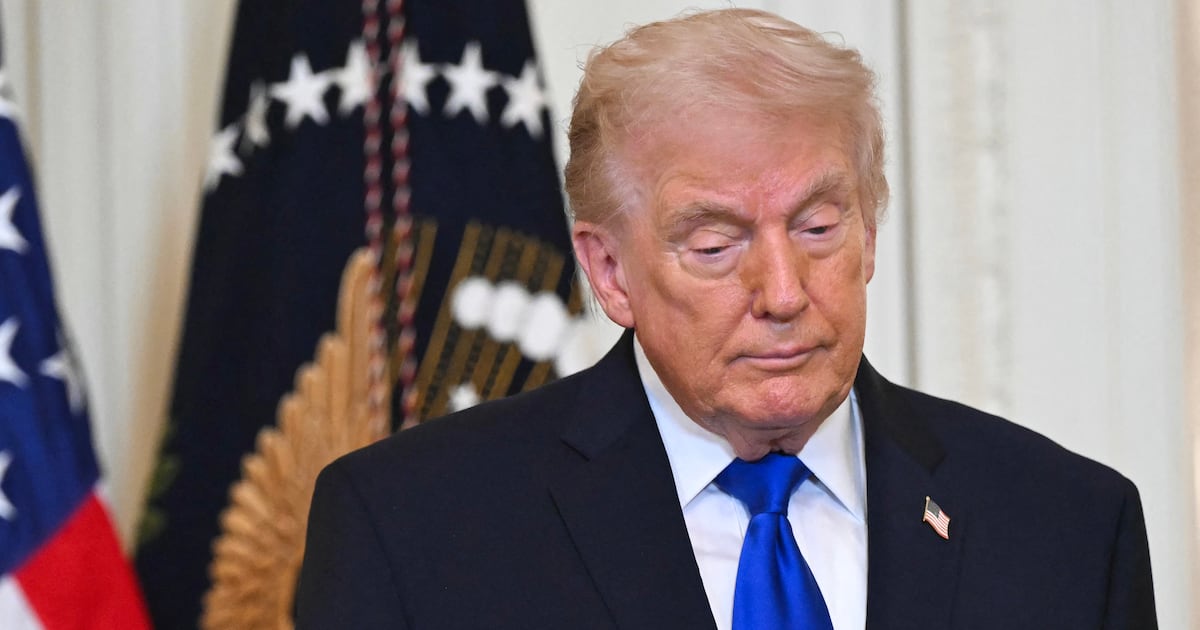Hamid Karzai, the notoriously excitable president of Afghanistan, had one of his trademark meltdowns a couple of weeks ago, accusing his nominal ally, the United States, of colluding with the Taliban.

U.S. officials were exasperated by Karzai’s baffling assertion—rendered all the more embarrassing because he made it during an official visit from Secretary of Defense Chuck Hagel—and it fell to Secretary of State John Kerry on Monday to smooth things over during a surprise trip to Kabul.
“He had two one-on-one sessions with Karzai. They were on their own,” said media mogul Saad Mohseni, whose connections run deep in both the Afghan and U.S. governments. “It’s not known what was discussed, but whatever they discussed calmed Karzai completely down. If you looked at the body language and the chemistry between the two, it was a very good trip.”
Mohseni, who was in the Afghan capital when Kerry arrived, added that Karzai’s fit of pique two weeks ago got immediate blowback from his countryman, who polls indicate are largely supportive of America’s role in “let’s not be shy about it—it’s nation-building,” he says. “Whether they were members of the intelligentsia, whether they were media people, whether they were academics, 95 percent of the talking heads on television every night were condemning what the president was saying. They didn’t agree with him. There was an extraordinary scene in Parliament, where people came out and said, ‘This is unacceptable. He doesn’t represent our views.’ And the backlash was so strong that Karzai had to take a step back.”
If Kerry acted as a kind of human tranquilizer, the London-born Mohseni—like Kerry, the son of a diplomat—sometimes displays the instincts of an agitator. After Karzai insisted during a press conference this week that he never said what everybody thought he’d said, the nightly news show on Mohseni’s Tolo (for “dawn”) television channel demonstrated otherwise. “We had both clips back-to-back last night on our news,” Mohseni told me on Wednesday with a chuckle.
After the Soviet invasion in 1979, his ambassador-father found it unadvisable to return to Kabul, and Mohseni and his three younger siblings grew up in exile in Japan and Australia. But ever since the Americans toppled the Taliban in the aftermath of 9/11, the 46-year-old Mohseni has focused his energy on his homeland, championing freedom of expression, religious tolerance, economic growth, and the empowerment of Afghan women and girls. He’ll be a featured speaker at next week’s two-day Women in the World Summit presented April 4-5 by Newsweek and The Daily Beast.
Aside from being an occasional guest on American television—the face of Afghan enlightenment on such venues as The Daily Show and Charlie Rose—Mohseni is the supremely well-informed chairman and chief executive of Moby Group, a conglomerate boasting 1,000 employees and operations across South and Central Asia as well as the Middle East. Mohseni, his two brothers, and sister launched their family business in 2002 with an initial $500,000 investment and built it into Afghanistan’s dominant multimedia powerhouse with a 60 percent market share. Today Moby’s television, radio, Internet and publishing ventures are the No. 1 source of news, entertainment and educational content for the world’s 30 million Afghans, reaching 15 million of them daily on Tolo with soap operas, reality shows and aggressive journalism—sometimes to the displeasure of the Karzai regime, especially when spotlighting government corruption.
Altogether, Moby Group’s programming has had a transformative effect on Afghan society, which over the past decade has been rapidly emerging from centuries of tribalism, illiteracy, poverty, rigid sexism and, more recently, the brutal strain of Islam imposed by the Taliban.
“I think people are receptive to change, and the media has played an important role,” Mohseni told me. “People have been exposed to how things can be done differently—the acceptability of women in the workplace, for example. One of the reasons we’ve been able to fast track that in a place like Afghanistan is because of the media. They watch soap operas where women go to work and it’s acceptable for women to be in the workforce.”
Thus a previously outrageous notion has swiftly been normalized.
“At the end of the day, there hasn’t been much resistance—that’s what’s been extraordinary—and whenever there has been resistance it has been short-term resistance,” Mohseni said, noting that Afghanistan has a young, potentially open-minded population with a median age of 17. “When we started our radio station initially, we had a male DJ and a female DJ, and we almost had a riot because people were infuriated by the fact that these two people were having a casual conversation on the air in 2003,” Mohseni recalled. “Within a month, not only did that format become acceptable, it was the most popular format. Every other radio station copied it. So when we talk about social change, we’re not talking about forcing people to change. We’re giving them a glimpse of what’s possible. And in this case, it was only a few weeks and it very soon became an acceptable way of doing a radio program.”
Moby Group’s most socially powerful offering is probably Tolo’s Afghan Star, an American Idol-like singing competition that has become a national obsession. Featuring female contestants and women behind the camera, it has remained Afghanistan’s top-rated TV show in its just-finished eighth season, and was the subject of a compelling documentary that was honored at the 2009 Sundance Film Festival.
“The narrative of Afghanistan has changed so much,” said Mohseni, who, in a recent, much-buzzed-about Wall Street Journal Op-Ed, enumerated a host of hugely positive developments that have been virtually ignored by the Western media. “I think for awhile, the media needed to tell a certain story—if it doesn’t bleed, it doesn’t lead. The narrative became ‘the country’s failing, it’s too corrupt, nothing’s changed, let’s get the hell out.’ But the country itself has moved so much and the change has been so dramatic.”
The incessant doom saying “is completely unfair to the Afghan nation certainly,” Mohseni continued. “And it’s also unfair to the hundreds of thousands of American and international troops who have served in the country and sacrificed so much.”
Thousands of lives lost, mostly Afghan, and many billions of dollars spent, mostly American, have not gone in vain, he said. The Afghan security forces, trained and financed by Western governments, are increasingly professional and disciplined; and despite regular incidents of lethal violence on Western solders by their supposed trainees, Mohseni predicted the Afghan army will be up to the task of securing the country when the Americans depart in 2014.
“The investment that we’ve seen in developing the infrastructure, in developing education and so forth, has given us positive results,” he said. “It hasn’t been a waste. Eight million children are now going to school, of which two and half million are girls. We’re taking about a lot of people in a population of 30 million. Imagine a decade from now how different the country will be!”






